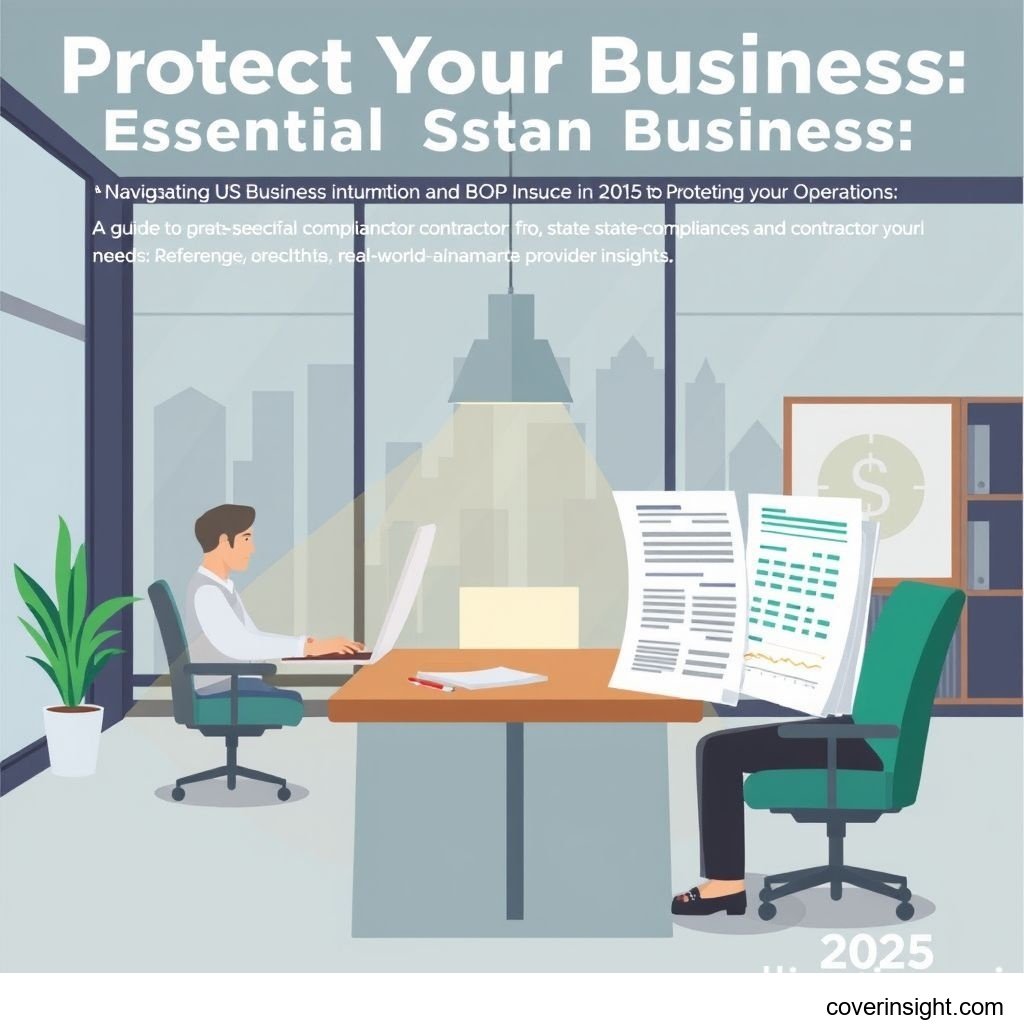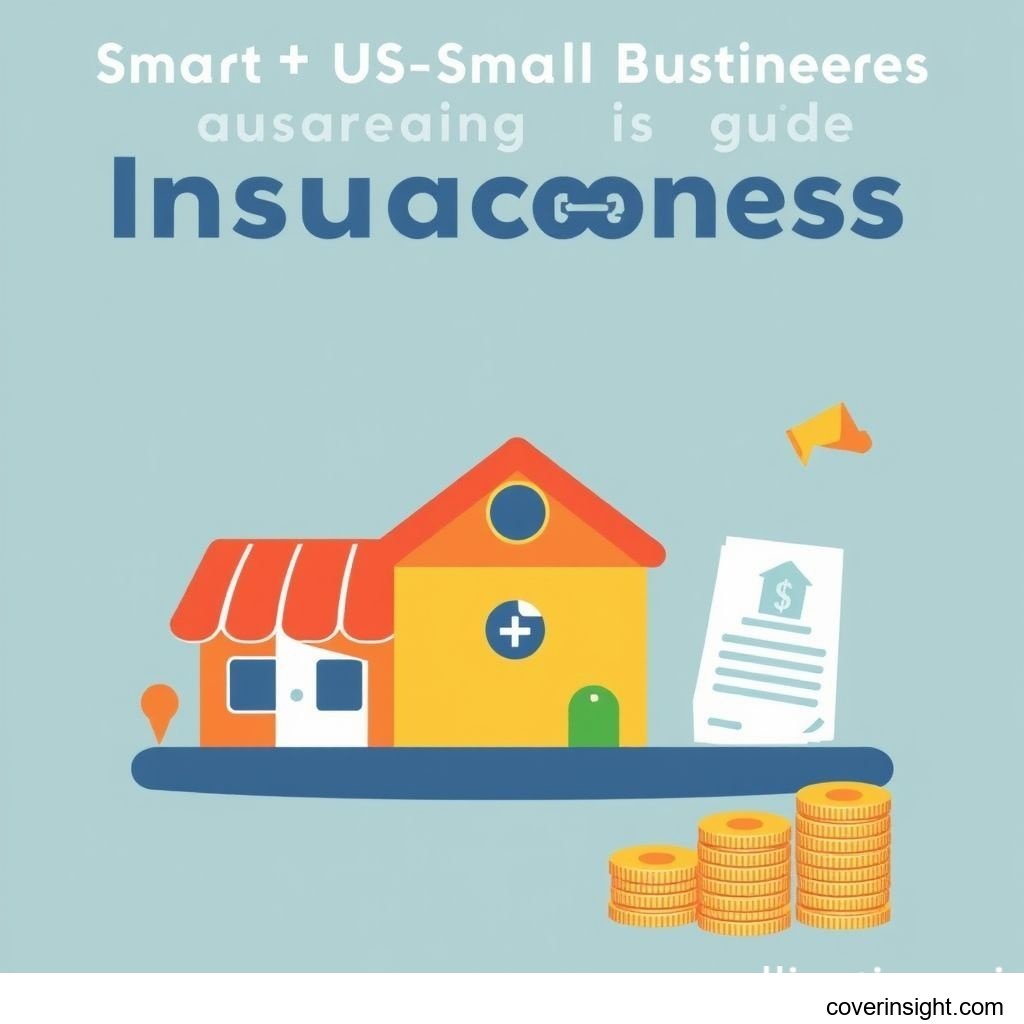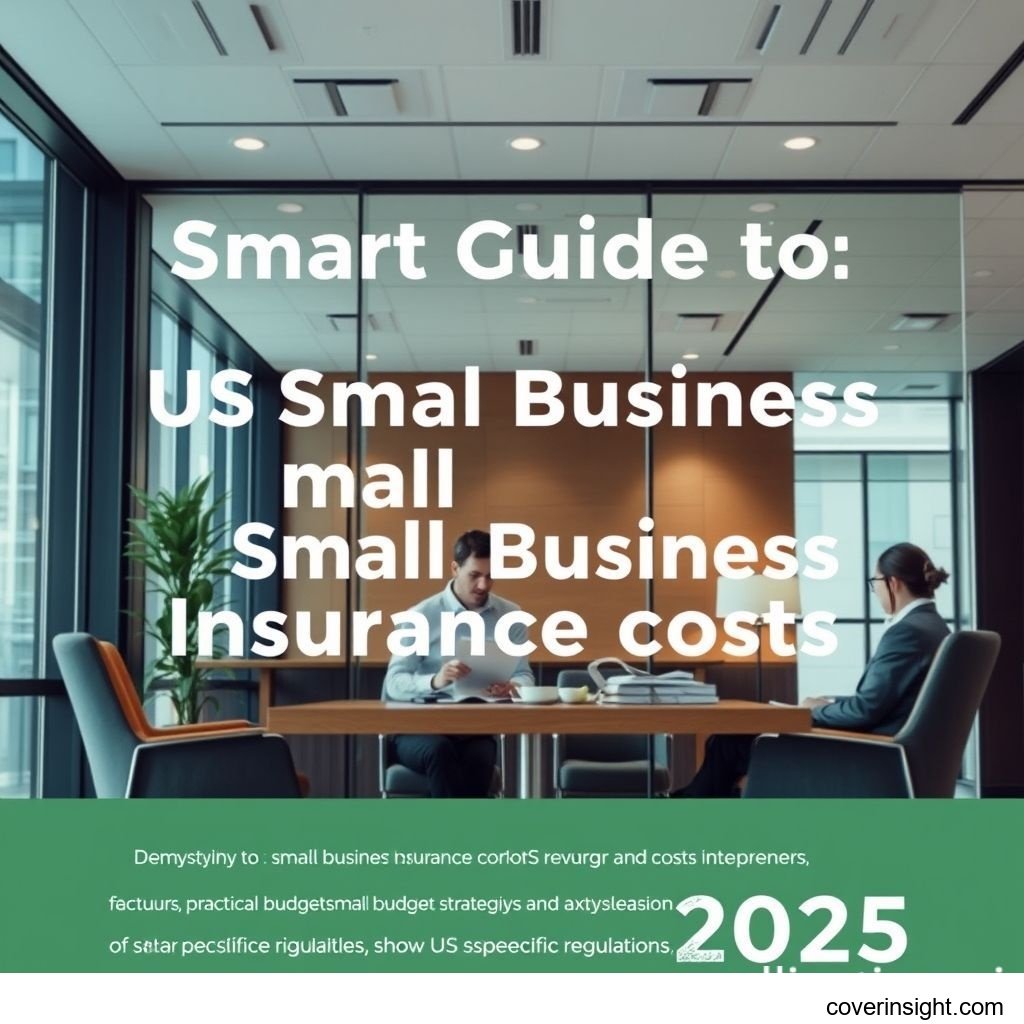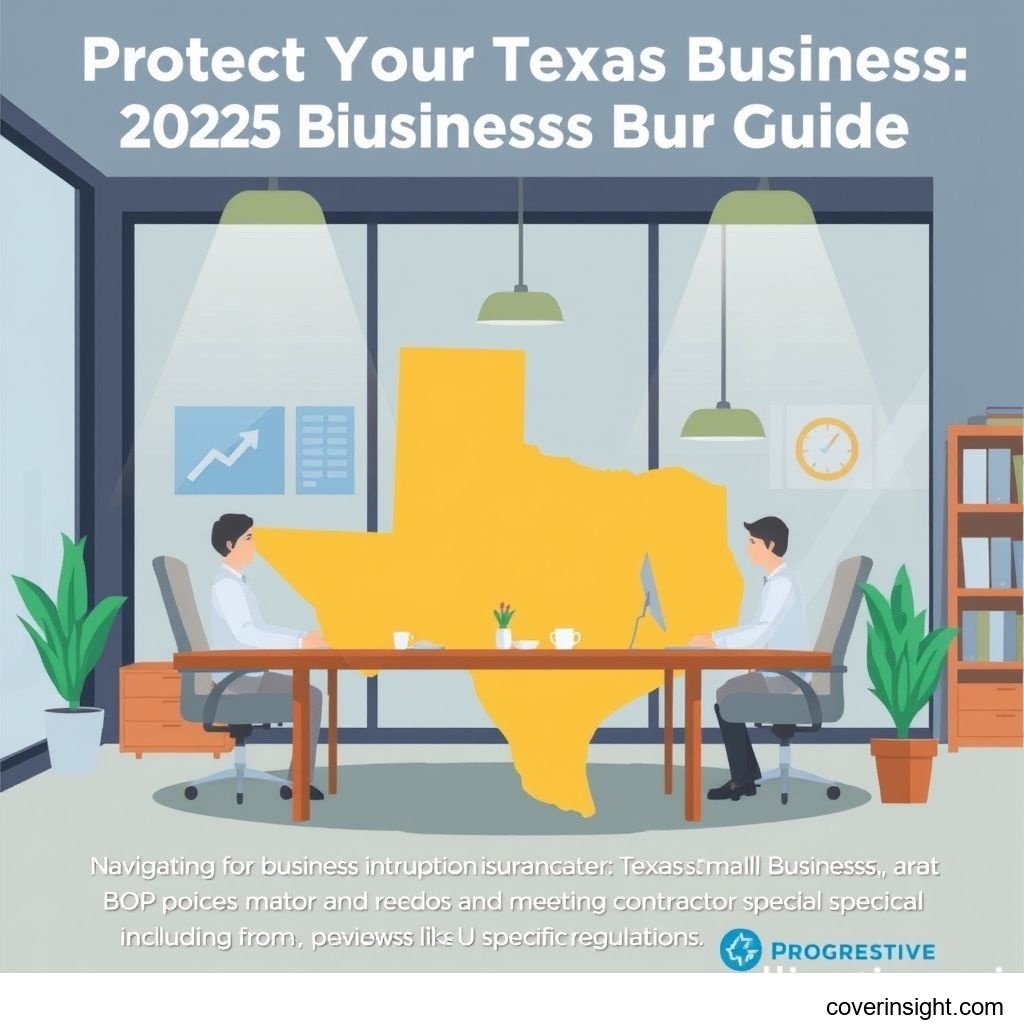Protect Your Business: Essential US Interruption Insurance 2025
Introduction
In the dynamic landscape of American commerce, business interruption insurance in the US is emerging as an indispensable safeguard for 2025 and beyond. Far from being a mere luxury, this specialized form of coverage has become a cornerstone of robust risk management. It’s designed to protect businesses from the financial fallout of unexpected disruptions, ensuring continuity when the unthinkable happens. Whether it's a natural disaster, a major equipment breakdown, or a fire, having the right policy in place can mean the difference between a temporary setback and permanent closure. Understanding its nuances is crucial for any business owner looking to batten down the hatches against future storms. For broader insights, you might explore Insurance Resources Global.
Coverage Details
What’s Included
Typically, business interruption insurance kicks in when a covered peril forces your business to temporarily cease or significantly reduce its operations. The primary aim is to replace the income your business would have earned had the disaster not occurred. This often includes:
-
Lost Profits: Reimbursement for the net income or profit your business would have generated.
-
Fixed Operating Expenses: Coverage for ongoing expenses like rent, utilities, loan payments, and salaries that continue even when your business isn't operational.
-
Temporary Relocation Costs: If you need to move to a new location temporarily to continue operations, these costs can be covered.
-
Extra Expenses: Funds for reasonable expenses incurred to minimize the suspension of operations or to expedite reopening, such as renting temporary equipment or paying overtime wages.
-
Civil Authority Coverage: If a civil authority, like the local government, prohibits access to your property due to damage to a nearby property, this coverage can apply.
Many policies also include an "extended period of indemnity," which provides coverage for a period after your business reopens while it works to regain its pre-disruption income levels.
Common Exclusions
While powerful, business interruption insurance isn't a magic wand. There are common exclusions you need to be aware of:
-
Pandemics and Viruses: Many standard policies explicitly exclude losses caused by viral outbreaks or pandemics, a critical lesson learned from recent global events.
-
Physical Damage Not Covered by Property Policy: If the initial cause of the interruption (e.g., flood, earthquake, mold) is not covered by your primary commercial property policy, then the business interruption coverage won't apply either, unless specifically endorsed.
-
Undocumented Income: Income that cannot be verified through financial records is typically not covered.
-
Market Fluctuations: Losses due to economic downturns, loss of customers, or general market conditions are not covered.
-
Government Orders (unless related to direct physical damage): Unless a civil authority order is directly related to a covered peril that caused physical damage near your property, general government mandates might not be covered.
-
Interruption due to cyber-attacks: Unless specifically added as a rider or part of a separate cyber liability policy, cyber-related interruptions are often excluded.
Cost Analysis
Price Factors
The premiums for business interruption insurance can vary widely, influenced by several key factors:
-
Industry Type: High-risk industries (e.g., manufacturing, restaurants) typically face higher premiums due to greater potential for disruption.
-
Location: Businesses in areas prone to natural disasters (e.g., hurricane zones along the coast, earthquake-prone California) will generally pay more. For instance, the National Flood Insurance Program (NFIP), administered by FEMA, often highlights how location dictates risk, and this principle extends to business interruption.
-
Coverage Limits and Deductible: Higher coverage limits (the maximum payout) and lower deductibles will naturally lead to higher premiums.
-
Business Size and Revenue: Larger businesses with higher revenue streams requiring more extensive coverage will incur greater costs.
-
Business Continuity Plan: Businesses with a well-developed and tested continuity plan may qualify for discounts, as they demonstrate a lower overall risk.
-
Policy Term and Structure: The duration of the policy and whether it’s bundled with other insurance types (like property insurance) can affect the price.
Saving Tips
Keeping costs down while ensuring adequate protection is a common goal. Here are some saving tips:
-
Increase Your Deductible: Opting for a higher deductible can significantly lower your premium, but ensure you have the cash reserves to cover it.
-
Bundle Policies: Many insurers offer discounts when you bundle your business interruption coverage with your commercial property or business owner's policy (BOP).
-
Implement a Robust Business Continuity Plan: Demonstrate to insurers that you are actively mitigating risks. This includes having backup systems, disaster recovery plans, and off-site data storage.
-
Regularly Review Your Coverage: Business needs change. Review your policy annually to ensure it still aligns with your current revenue, expenses, and risk profile. Don't pay for coverage you no longer need, or be underinsured when you need it most.
-
Shop Around: Get quotes from multiple insurance providers. Prices and terms can vary significantly. Consider visiting your US Insurance Home for diverse options.
FAQs
-
How much does business interruption insurance cost?
There's no one-size-fits-all answer. Premiums typically range from a few hundred dollars to several thousand per year, depending on the factors mentioned above. A small retail shop might pay $500 annually, while a large manufacturing plant could pay $10,000 or more.
-
What affects premiums?
Premiums are primarily affected by your business's industry, location, desired coverage limits, deductible amount, and the comprehensiveness of your existing disaster preparedness plan. Essentially, the higher the perceived risk and potential financial loss, the higher the premium.
-
Is it mandatory?
No, business interruption insurance is generally not legally mandatory in the US. However, many commercial leases or loan agreements may require it as a condition for doing business, especially for larger operations. From a practical standpoint, it's considered essential for financial resilience. For general business support resources, government portals like those found via Healthcare.gov (though primarily for health) or State Insurance Departments (for regulatory bodies) can offer broader insights into the regulatory landscape.
-
How to choose the right policy?
Choosing the right policy involves a careful assessment of your business's specific risks, potential period of interruption, and financial needs. Work closely with a qualified insurance broker who understands your industry. They can help you calculate potential lost income and ongoing expenses to determine adequate coverage limits and the appropriate indemnity period. Checking resources from the National Association of Insurance Commissioners can also provide guidance on consumer protections and state regulations.
-
Consequences of no coverage?
The consequences of operating without business interruption insurance can be dire. Without it, a significant disruption could lead to irreversible financial losses, inability to pay ongoing expenses (like rent and salaries), and ultimately, permanent business closure. According to data from the Small Business Administration (SBA), a significant percentage of small businesses never reopen after a major disaster. For example, after Hurricane Katrina, many businesses in New Orleans that lacked this crucial coverage simply couldn't weather the storm, financially speaking, even if their physical structures were eventually repaired. It's a gamble few businesses can afford to lose.
Author Insight & Experience
Based on my experience consulting with numerous businesses across the US, one crucial observation stands out: the profound difference business interruption insurance makes in the wake of unforeseen events. It’s not just about recovering financially; it's about buying time. As someone living in the US, I’ve seen firsthand how wildfires in California or severe storms across the Midwest can decimate local economies. Businesses that had the foresight to invest in this coverage were often the ones that managed to keep their employees paid, their lights on (even if at a temporary location), and ultimately, reopen their doors. The peace of mind it offers, knowing that a lifeline exists, is truly invaluable – it allows business owners to focus on recovery rather than spiraling debt. It's a foundational piece of any solid continuity strategy, allowing you to bridge the gap until you’re back on your feet.










Comments